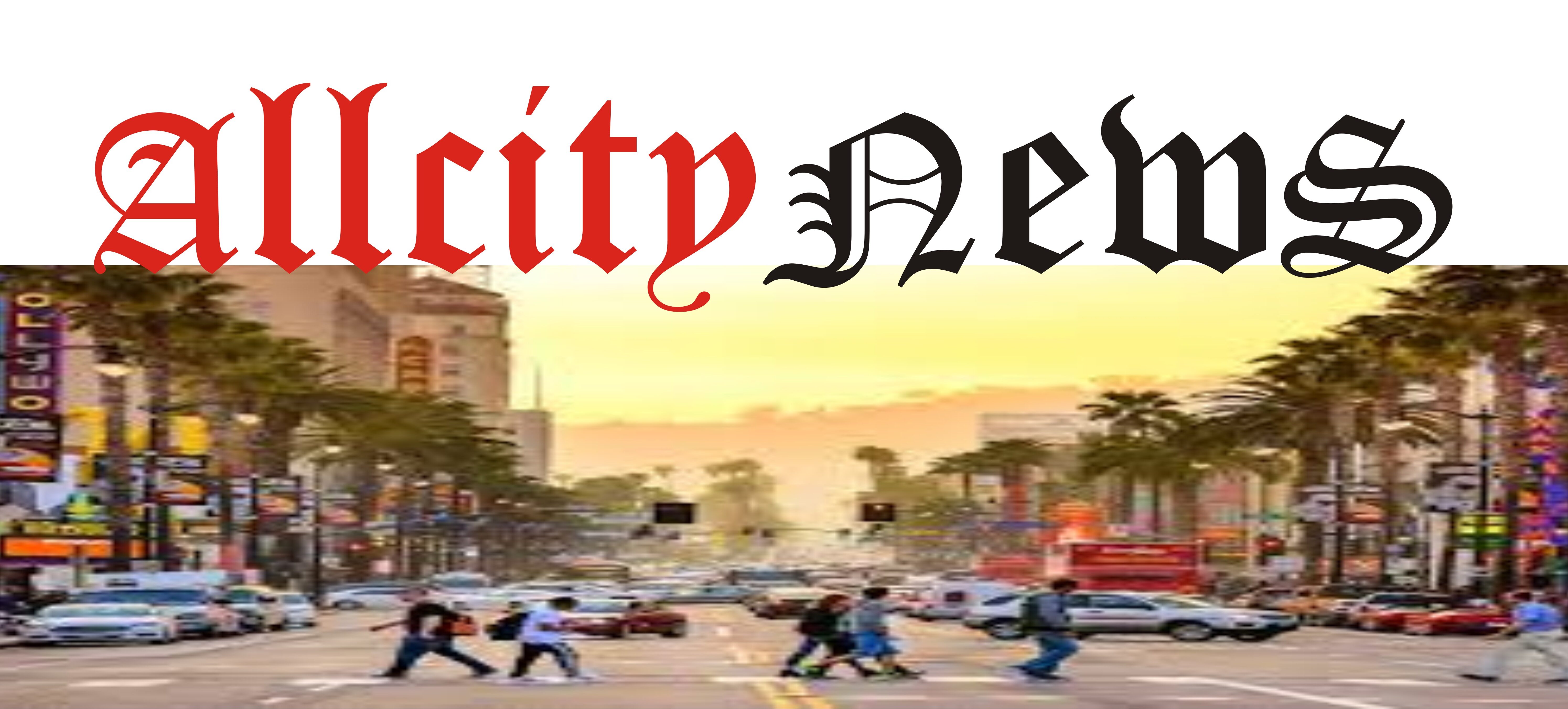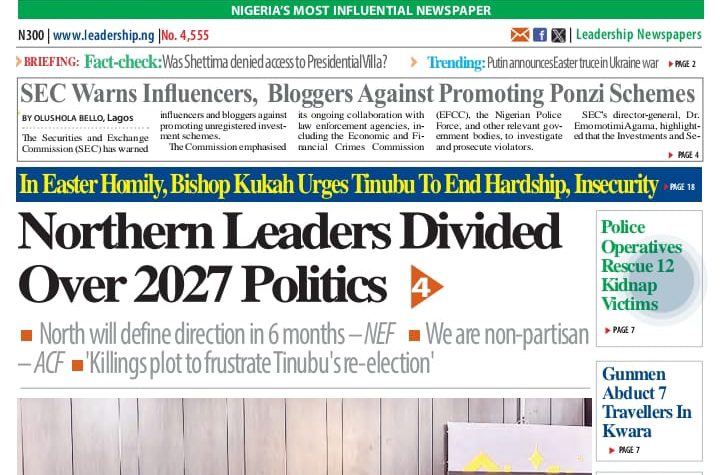
By allcitynews.ng
By Dr Muda Yusuf
We commend the President for withholding assent on the 2023 Finance Bill as this would allow for broader consultation, participation and inclusion in the legislative process. This is also in line with democratic standards of law making.

Meanwhile, the CPPE has comments on some aspects of the bill as follows:
IMPOSITION OF EXCISE DUTY ON ALL SERVICES:
This provision is too broad, inexact and wide ranging and makes the business community very vulnerable. There is no jurisdiction around the world where all services are liable to excise duty. Excise duties are typically specific and selective, and often imposed to disincentivize consumption or production of particular product groups.
The current open-ended provision is inimical to investment. It makes the imposition of excise duties arbitrary, indiscriminate and unpredictable. The bill should contain specifics of services to be taxed for better stakeholder engagement.
Meanwhile, it is important to take account of the fact that practically all services are currently liable to Value Added Tax.
The service sector is a very strategic sector in the Nigerian economy, contributing 54% to GDP and currently the largest contributor to government tax revenue. It also accounts for an estimated 53% of employment.
We are concerned that companies in the service sector are already paying huge taxes in the form of company tax which is currently at 30% , tertiary education tax at 2.5%, NITDA levy at 1%, NASENI levy at 0.25%, Police Trust Fund Levy at 0.005% and withholding tax on profit distribution at 10%. All the taxes are percentages of company profit. Additionally, there are numerous taxes and levies imposed by state governments.
Investors in the sector pay various sums as fees and levies to regulatory agencies. High tax burden on businesses is detrimental to investment and job creation and could ultimately undermine revenue generation prospects of government.
Revenue drive should rather focus on efficiency, effectiveness and equity as major policy objectives of taxation.

IMPORT LEVY ON IMPORTS FROM OUTSIDE AFRICA
The proposal in the Finance Bill to impose 0.5% levy on all imports coming from outside of Africa will be an additional burden on both businesses and the citizens. It will escalate operating expenses, production costs and fuel inflation in the economy. Most equipment, machineries, ICT equipment, medical equipment are all imported from outside of Africa. Imposing a levy of 0.5% on this group of items will be inimical to investment, economic growth and the welfare of the citizens.
Already, currency depreciation had made imports very expensive with profound inflationary effects. Currently, investors and citizens are paying 0.5% levy on all imports from outside of ECOWAS. This is in addition to import duty and numerous charges and levies paid by importers at the ports.
Many manufacturers import their raw materials from outside of Africa, especially intermediate products not available on the continent. We strongly advise against the imposition of an additional levy on imports.

COMPANY INCOME TAX HIKE ON GAS FLARING COMPANIES:
Nigeria has one of the largest gas reserves in the world of more than 190 trillion cubic feet. It is Africa’s largest gas reserves. The prospects for investment in gas have never been this auspicious, driven largely by the Russian – Ukraine conflict. This is a great opportunity for Nigeria to attract investors into its gas sector and take advantage of the current global high demand for gas.
This is not a good time to impose a punitive tax on gas companies. Besides, the 50% tax introduced is not consistent with the essence of the recently enacted Petroleum Industry Act [PIA]. The government should explore other gas flaring mitigation measures, which must be proportional to the volume of gas flared.
Policy consistency is vital to attract and retain investment in the gas sector in line with the aspirations of government as expressed in the PIA. The act was enacted just about a year ago. We should refrain from actions that would signals of policy inconsistency to investors in the sector. This could dampen investors’ confidence.
PROPOSAL TO INCREASE TERTIARY EDUCATION TAX FROM 2.5% TO 3%
Less than two years ago, the tertiary education tax was increased from 2% to 2.5%. It is too soon to propose another increase. Besides, companies are still contending with several macroeconomic, structural, global and regulatory headwinds. It will be inequitable to increase the tertiary education tax at this time. This would will be putting too much burden on corporate entities on business and investors in the Nigerian economy.
The perception of corporate entities as cash cows for solving all revenue problems is utterly misplaced. We should be a lot more creative in our revenue drive so as not to overburden the current crop of tax payers. The tax base is still extremely narrow and should widened. The economy is about 50% informal, which meant that the incidence of taxation is largely on the formal sector of the economy.
The focus of taxation should be on collection efficiency, broadening the tax base and improvement in tax governance. Revenue collection responsibilities should be integrated into a single agency for more efficient administration.
Additionally, there is implicit taxation as companies still have to provide supporting infrastructures and other facilities such as power generation, water supply, and security for their assets. In some instances, companies construct access roads to their premises. Numerous taxes, fees and levies are also paid to sub-national governments and regulatory agencies. All of these should be taken into consideration in the formulation of tax policies.
Excessive taxation on businesses has harmful effects on investment, economic growth, job creation and poverty reduction. As highlighted previously, effective corporate tax is currently about 34% which is one of the highest in the world.
UNLOCKING REVENUES FROM SUBSIDY REGIMES:
The Nigerian economy is heavily burdened and encumbered by two major subsidy regimes: the fuel subsidy regime and the foreign exchange subsidy regime. Huge sums of revenue can be unlocked from these subsidy regimes, if appropriate reforms are implemented.
Already, there is a plan to discontinue petroleum subsidy, which is a positive development. This action would unlock a minimum of N6 trillion revenue into the federation account annually. Additionally, there would be an end to the several years of plundering of the nation’s resources through the subsidy regime. The next administration would need to demonstrate the political will to put an end to this predatory practice. Meanwhile, CPPE strongly appeals to the labour unions and the civil societies to give the oil and gas sector reforms a chance to prevent the Nigerian economy from tumbling into deeper crisis.
The second major subsidy regime from which huge revenues can be unlocked in the short term is the foreign exchange policy regime. Over the years the exchange rate assumptions in the appropriation acts were grossly and deliberately understated, leading to loss of trillions of naira to the federation account.
In 2021, for instance, the Central Bank sold an estimated $18 billion US dollars as interventions in the foreign exchange market at a hugely subsidized average rate of N400 per dollar. Effective exchange rate in the economy at the time was N560/$. This meant an estimated subsidy of N160/$ which translated to a conservative estimated revenue loss of N2.9 trillion.
Similarly in 2022, an estimated $18 billion was sold as intervention in the forex market at an average rate of N447/$. The average effective exchange rate for the period was conservatively about N650. Again, this meant a subsidy of N203/$. This translates to an estimated revenue loss of about N3.64 trillion.
These are huge loses of revenue to foreign exchange subsidy which are as damaging to the economy as the fuel subsidy. But curiously, the National Assembly and the CBN had serially, grossly and inexplicably underestimated the exchange rate benchmark in the appropriation bills of the past few years . For an economy that is burdened by huge fiscal deficit and unsustainable debt obligations, this should not be allowed to continue in 2023. The reality is that forex end users are paying well over N700/$ for their business transactions. Selling government forex at less than N500/$ in inexcusable.
The exchange rate assumption in the budget should be immediately reviewed to reflect exchange rate realities and boost revenue to the federation account. This could be done within the framework of the Finance Act which is fortunately being reviewed. A realistic exchange rate benchmark would boost the federation account revenues by about N4 trillion in 2023.
This will not only benefit the federal government, but the states and local governments as well. A realistic exchange rate would also improve forex inflows into the economy, enhance the country’s foreign reserves, strengthen the naira and elevate investors’ confidence.
Currency brokers, middlemen and some operatives in the financial system are the major beneficiaries of the huge arbitrage opportunities, massive rent economy and the vast round-tripping enterprise that the forex subsidy regime has created.
Unlocking revenues from the forex subsidy would be a significant major step towards realization of fiscal consolidation objective of government. This would also reduce the current tendencies to impose additional burden of taxation on businesses and moderate macroeconomic headwinds.
It should be stressed that this is not a devaluation proposition. It is a strategy meant to correct distortions in the forex ecosystem, boost government revenues, curb corruption in forex transactions and enhance liquidity in the forex market. It will also improve efficiency in forex allocation, promote transparency in the forex environment and raise investors’ confidence in the Nigerian economy.
Dr Muda Yusuf, Director of Economic Think Thank, the Centre of the Promotion of Private Enterprise (CPPE)











More Stories
BUA Foods Records N125bn Profit As Revenue Grows by 24% in Q1 2025 Unaudited Financial Results
Safety Day: Workers are our prized assets at FIRS — Adedeji
FIRS unveils new electronic invoicing platform, a transformative milestone in Nigeria’s tax administration reform